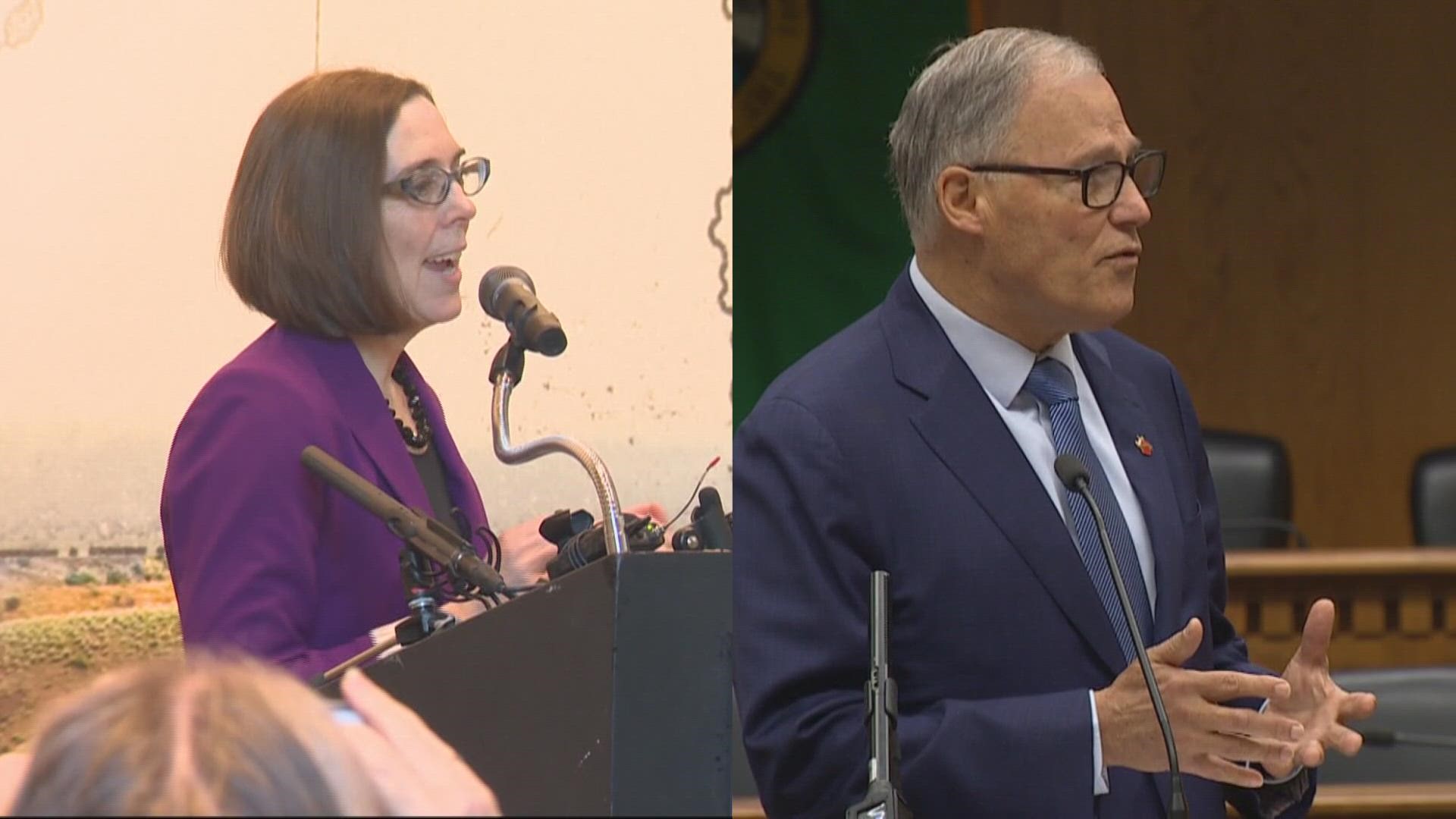PORTLAND, Ore. — Oregon and Washington have followed similar paths in responding to the coronavirus pandemic, but the two states differed when it came to vaccine mandates and exemptions for state workers.
In Oregon, with more than 40,000 employees falling under the mandate, nearly 34,000 got vaccinated. Eleven percent, nearly 4,300 people, received religious exemptions.
In Oregon, an exemption means accommodations are made and state workers keep their job. That is not the case in Washington, where 63,000 public employees faced a COVID-19 vaccine mandate.
More than 56,000 of those employees proved vaccination, and roughly 7% received a religious exemption. But in Washington, only 3% were granted an accommodation to keep their job.
Professor Carlos Crespo, the director of PSU's school of public health, said whether state workers are accommodated or lose their jobs, as hard as that is, it accomplishes the same goal for public health.
“The expectation is that you are not going to put someone in harms way, and therefore governors have to require that those who represent the government are not harming or could potentially harm someone else,” said Crespo.
Oregon and Washington leave decisions about exemptions up to different groups. In Washington, exemption decisions are being made at the state human resource office level. In Oregon, they are being made by the agencies themselves, with guidance provided from centralized state HR to help understand what exemptions are and how people can qualify for them.
Crespo said it's unfortunate the situation has become political.
“We cannot ignore the fact the COVID-19 was the number three cause of death in 2020," he said.
Health officials continue to remind everyone that the best way to stop the spread of COVID-19 is to get vaccinated.

